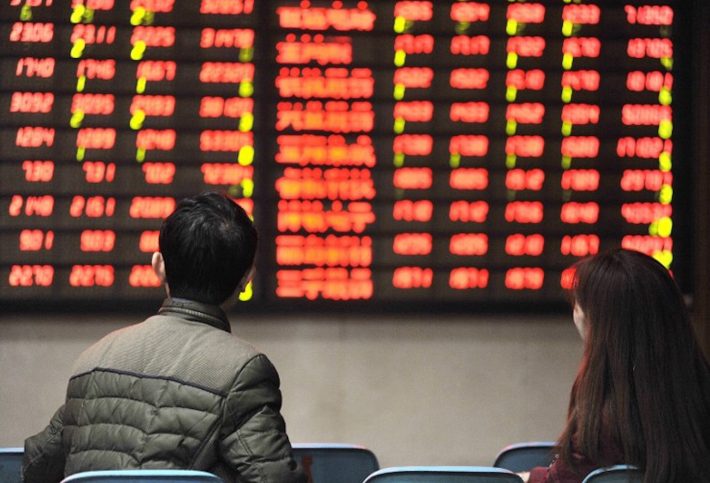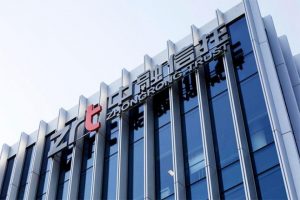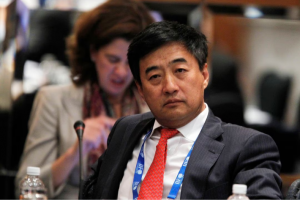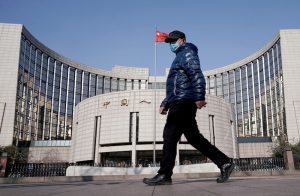China tech stocks fell and property giant China Evergrande Group plunged after a profit warning, dragging down indexes in Hong Kong and the mainland.
The Hang Seng Tech Index tumbled 1.9%, following three consecutive days of gains while China’s tech-heavy STAR 50 Index lost almost 3%, closing at its lowest level in two months. Kuaishou Technology plummeted 9.2%, while Aac Technologies Holdings Inc plunged almost 10%. Alibaba shares were down 1.4%.
Evergrande’s shares tumbled almost 7.5%, while Evergrande New Energy Vehicle dropped 18.7%. Battery giant CATL wiped out early gains and ended the session down 1.7%, despite its stellar earnings, after state media said stocks related to China’s new energy vehicle sector were overheating.
“Many investors are asking us whether it is time to buy Chinese technology stocks,” wrote Peter Garnry, head of equity strategy at SAXO Bank. “The short answer is no.”
Garny said it would take time for “foreign investors to come back and the ”tail-risk that has happened in Chinese technology stocks will not be easily forgotten by investors.”
China’s regulatory storm against tech companies, private tutoring firms, and the property sector has unnerved many investors, and its push for so-called ”common prosperity” to address inequality prompted Morgan Stanley to warn recently of a profound policy shift that will boost households at the expense of owners, shaping the evolution of China’s capital markets in the coming years.
A Communist Party official spoke out on the issue yesterday, saying that the push for common prosperity does not mean ”killing the rich to help the poor” and that China should guard against ”welfarism.” But Han Wenxiu, an official at the central financial and economic affairs commission, also said that those who “get rich first” should help those who are behind.
Charitable giving should be incentivized through taxation policy and can improve the “distribution structure”, Han said. Donations are “not compulsory,” he added.
China has said it will protect legal income but “rationally adjust excessively high” incomes, according to a meeting chaired by President Xi earlier this month. High-income groups and firms are also being encouraged to contribute more to society.
Recent policies to rectify and regulate internet platforms are aimed at irregularities and illegal behaviour, and are “absolutely” not aimed at private companies or foreign companies, stressed Han.
Both Hong Kong’s Hang Seng Index and China’s Shanghai Composite Index fell a little more than 1%.
Evergrande warning
Property shares in both Hong Kong and China also fell, after Evergrande, China’s most indebted property developer, forecast a slump of as much as 39% in its first-half profit, citing a drop in selling prices and higher expenses.
Growth in China’s home prices is expected to slow more than initially expected this year, as more cities implement curbs to stabilise their real estate markets and banks maintain tight credit quotas for developers, a Reuters poll showed.
Beijing’s unprecedented determination to tame property prices may trigger a worse-than-expected growth slowdown, more loan and bond defaults, and potential stock market turmoil, Nomura Holdings said on Tuesday. The property sector makes up a quarter of China’s economy and half of the global construction business and global investors should thus be prepared for a deeper economic slowdown in China than is expected, said Hong Kong-based Chief China Economist Lu Ting.
Banking shares also fell sharply, amid fears that lenders’ asset quality could suffer in a slowing property market, and a decelerating economy.
Analysts said investors are looking to the Jackson Hole Symposium for assurances that the Federal Reserve won’t be rushing in to tighten policy, a move that could trigger further capital outflows from emerging markets.
• By Kevin Hamlin, Jim Pollard and Reuters
ALSO SEE:
China Property Curbs May Trigger Stock Market Turmoil, Nomura Says
This story was updated with a new headline.
























